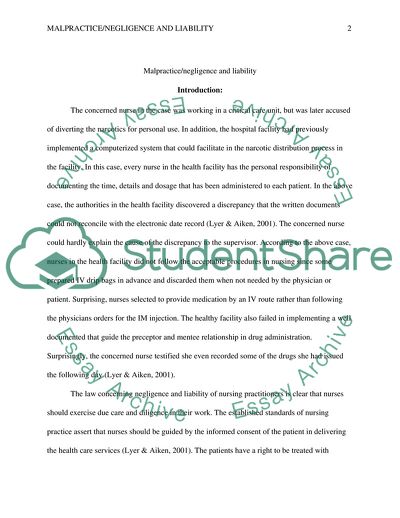Cite this document
(Malpractice/negligence and liability Assignment - 1, n.d.)
Malpractice/negligence and liability Assignment - 1. https://studentshare.org/nursing/1795962-nursing-malpractice-issues
Malpractice/negligence and liability Assignment - 1. https://studentshare.org/nursing/1795962-nursing-malpractice-issues
(Malpractice/Negligence and Liability Assignment - 1)
Malpractice/Negligence and Liability Assignment - 1. https://studentshare.org/nursing/1795962-nursing-malpractice-issues.
Malpractice/Negligence and Liability Assignment - 1. https://studentshare.org/nursing/1795962-nursing-malpractice-issues.
“Malpractice/Negligence and Liability Assignment - 1”. https://studentshare.org/nursing/1795962-nursing-malpractice-issues.


